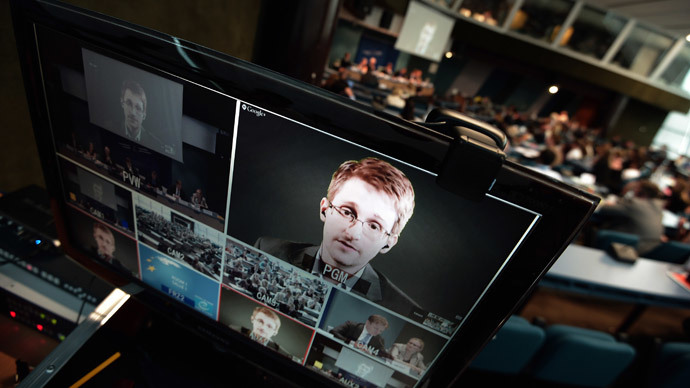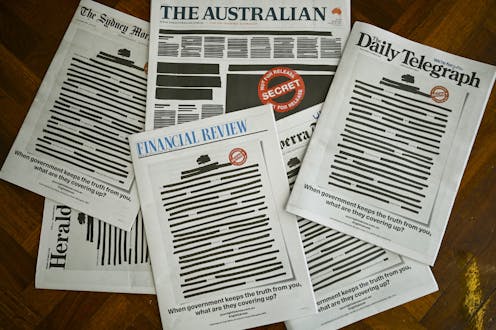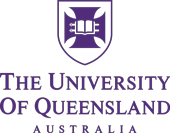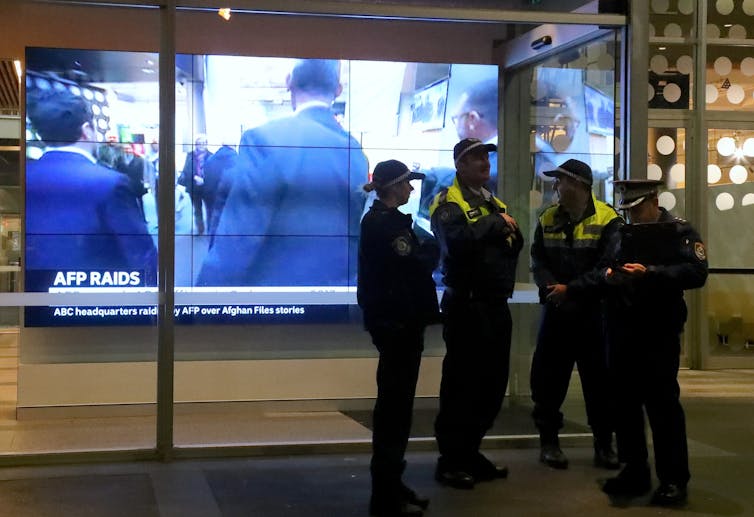In the public interest. Those working in the public interest are not traitors, those deceiving the public are betraying the oath of office.
https://www.rt.com/news/173264-australia-asio-whistleblowing-jail/
Australian bill sees whistleblowing on intel ops punishable by up to 10 years in jail
16 Jul, 2014 20:10 / Updated 5 years agoGet short URL

AFP Photo / Frederick Florin © AFP
Follow RT on

Australia’s attorney general has proposed a new bill which would see potential whistleblowers facing up to 10 years in prison for leaks on special intelligence operations.
Publishing Snowden-like revelations could cost dear in Australia after attorney general George Brandis presented to the parliamentary joint committee on intelligence and security a new bill expanding powers of the Australian Security Intelligence Organization (ASIO).
Australia’s attorney general George Brandis is known for labeling former NSA contractor Edward Snowden a “traitor” after a secret document reported by the Guardian Australia and obtained from Snowden last year revealed the Australian spy agency had been ready to share data on its citizens with its partners from the so-called 5-Eyes alliance (Australia, Britain, Canada New Zealand and the US).
The bill supposes the creation of a new offence for “any person” found guilty of disclosing “special intelligence operations” information, which would be five years behind bars.
“The five-year offence would seem to be able to apply even if the person had no idea about the special intelligence operation and they happened to release information which coincidentally was part of or related to the special intelligence operation,” leading Australian criminal law barrister Shane Prince commented to the Telegraph.
So a person could be put on trial for disclosing information on a “special intelligence operation” he never knew about – and would never get to know what the special intelligence operation was about during the trial, because it is an intelligence operation, that is – a secret one.
“I can’t see anything that would protect journalists,” said Green senator Scott Ludlam.
If the disclosure would “endanger the health or safety of any person or prejudice the effective conduct of a special intelligence operation,” this person would be liable for a ‘liberal’ 10-year prison term, reported the Guardian.
On the contrary, the officers conducting those “special intelligence operations,” would become immune from liability or prosecution – because they need to be engaged in activities that would otherwise be considered unlawful.
Acting and retired intelligence officers and contractors would be put under a constant threat of newly created offences to prevent any unauthorized document disclosures. The amendments equal private contractors to intelligence operatives to make them subject to prosecution with a penalty of up to three years.

Evidence of copying, transcribing, retaining or recording intelligence material is not required for these new penalties.
Instead of the previous two years in prison penalty for disclosing confidential information to a third party, the new penalty would be increased to 10 years.
The new clause covering security personnel “appears to be a clear attempt to stamp down on whistleblowers to avoid an Australian Ed Snowden,” commented Electronic Frontiers Australia chief executive Jon Lawrence.
“The fact that they’re making that illegal doesn’t necessarily stop a whistleblower though I think in the general context of what is a pretty extreme crackdown on whistleblowers generally,” Lawrence said.
The proposed legislation has been dubbed “troubling” by Australia’s leading criminal barrister and spokesman for Australian Lawyers Alliance Greg Barns, who said that this “unprecedented clause” that would capture any media organization that reports on intelligence activities, be it WikiLeaks, the Guardian or the NYT.
“I thought the Snowden clause [in the bill] was bad enough but this takes the Snowden clause and makes it a Snowden/Assange/Guardian/New York Times clause,” Barns told The Guardian.
All the ASIO would need to do to prosecute journalists would be secretly declaring any case a “secret intelligence operation”, with an approval of the security director-general or deputy director-general required, said Barns who used to advise WikiLeaks and work on terrorism cases.
“Their own boss says, ‘I think we better call this a special intelligence operation, don’t you?’ ‘Yes, sir,’ close it down. The more you talk about it the more outrageous it becomes,” Barns said.
As for making intelligence officers immune from prosecution, Barns is positive that society would regard officers participating in operations that imply violation of law as abuses of power.
“In Australia we lack that fundamental human rights protection and therefore Brandis can get away with inserting a clause into a bill which you wouldn’t be able to do in the UK or in the US,” Barns said, stressing “It’s the sort of clause you’d expect to see in Russia or in China and in other authoritarian states but you don’t expect to see it in a democracy”.
Australia’s whistleblower legislation is already very tight, leaving only a narrow window for disclosure of intelligence information in public interest, argued the Guardian. The penalties proposed for such activities by the new legislation would ‘fill’ the existing gap and close the window altogether.
“When things go awry total secrecy is not desirable. When something is seriously awry whistleblowers play a vital role in the provision of good governance,” said the president of the NSW Council for Civil Liberties, Stephen Blanks.
Australian MPs are set to debate the amendments presented by George Brandis in September.








